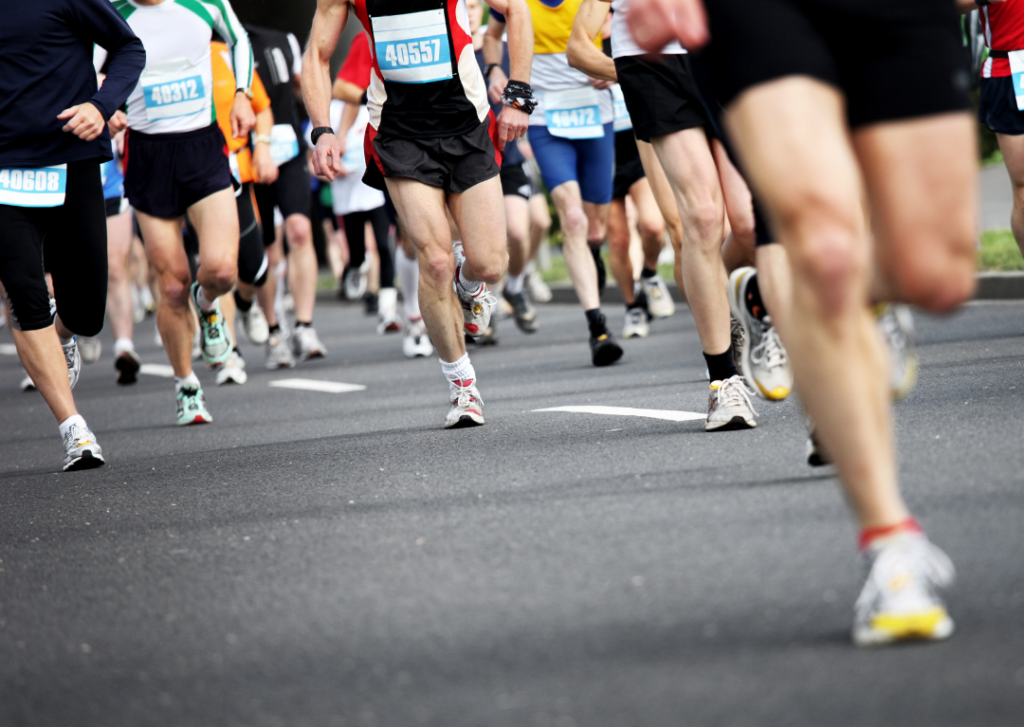Under-fueling linked to slower times and greater medical risk at Boston Marathon
Collaborators

For years, marathon runners have heard the mantra: “Lighter is faster.” However, a recent study on low energy availability indicators (LEA-I) debunks that age-old belief. Analysis of survey responses from over 1,000 runners – the largest such study to-date – found the key to a faster race is not being lighter but fueling properly.
Dr. Kristin Whitney and Dr. Kate Ackerman, researchers with the Wu Tsai Human Performance Alliance Female Athlete Program at Boston Children’s, and their team found that under-fueling is associated with slower race times and a 2.8-fold increased risk of major medical encounters during the 2022 Boston Marathon.

Canva Pro Images
The study, published in the British Journal of Sports Medicine, surveyed runners 1–4 weeks before the marathon on physical symptoms, eating habits, training, and injury history. Of these, 42.5% of female athletes and 17.6% of male athletes had LEA-I.
LEA occurs when there is a mismatch between energy intake and the demands of exercise, leading to symptoms like fatigue, increased injury risk, and, in more severe cases becomes Relative Energy Deficiency in Sport (REDs), with health issues such as bone weakness, reproductive dysfunction, gastrointestinal problems, and impaired athletic performance.
The team found that athletes without LEA-I achieved significantly better race times than those with LEA-I, even when controlling for age, gender, body-mass index (BMI), training level, and marathon experience. What mattered most was proper nutrition. Athletes who fueled well performed better and were healthier on race day.
This work is part of the Wu Tsai Human Performance Alliance Female Athlete Program at Boston Children’s Hospital and was co-funded with Eleanor and Miles Shore Faculty Development Awards Program, Harvard Medical School, Boston Children’s Hospital Department of Orthopaedic Surgery and Sports Medicine Award.
Co-authors include Alexandra DeJong Lempke, Trent Stellingwerff, Louise Burke, Bryan Holtzman, Aaron Baggish, Pierre A D’Hemecourt, Sophia Dyer, Chris Troyanos, Kaya Adelzadeh, Grace Saville, Ida Heikura, Nicole Farnsworth, Laura Reece, Anthony Hackney, and Kathryn Ackerman.
Media Coverage: Runner’s World
Latest News

August 13, 2025
Walkable cities linked to more daily movement, study finds

July 21, 2025
Save the date: Female Athlete Research Meeting

July 21, 2025
Alliance Round-Up: Probiotics at high altitude, sleep timing and physical activity, and more
Get Engaged
Join our mailing list to receive the latest information and updates on the Wu Tsai Human Performance Alliance.
